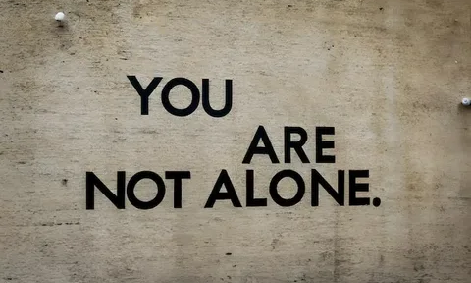
Have you ever woken from sleep certain that someone you loved—someone who has long since passed—was right there with you? Perhaps you felt their voice, their warmth, or even their gentle touch. In that fragile moment between dream and waking, it didn’t feel like imagination. It felt real. And then you wondered: Was it just my mind playing tricks, or was it something more? This haunting, yet strongly comforting, question lies at the heart of John E. McCarthy’s book St. James Way. Written out of love, loss, and an unshakable desire to understand life’s mysteries, the story discovers what many people hesitate to talk about openly: the possibility that our loved ones continue to walk beside us, even after death.
The author grounds his story in his own grief. His brother Rick died at just 19 years old, following a risky neurosurgery. To a teenage John, the loss was devastating. Rick had been strong, athletic, musical, and loving. When his life was cut short, John’s faith in God cracked under the weight of sorrow. And yet, Rick didn’t seem gone forever. In the book, George—the central character modeled after the author—dreams of Rick long after his death. But these are not ordinary dreams. They carry clarity, warmth, and messages that feel too clear to be dismissed. In one encounter, Rick reassures George, “I love you,” bringing a sense of peace where there had only been despair. Later, Rick appears again, guiding George to confront a spiritual darkness. He warns of an evil presence and urges his brother to stand firm with courage. For George, these moments are not simply the product of memory or longing—they are proof that love outshines death.
The book raises an important question: why do so many of us hide these experiences? The author acknowledges a reality most of us understand all too well. People fear ridicule. They don’t want to be dismissed as “crazy” or overly imaginative. But silence doesn’t mean these encounters don’t happen. Across cultures and generations, stories echo with loved ones visiting in dreams, appearing in visions, or sending signs—be it a bird at the window, a sudden familiar scent, or an unexplainable warmth in the heart. McCarthy fuses these universal truths into the fictionalized experiences of his characters, making the story both intimate and relatable. Through his characters, the author presents a great perspective: we are not just physical beings. We are spiritual beings, learning and growing through our earthly experiences. Death, in this view, is not an ending but a transition. Our souls continue to grow, to learn, and to love—even after the body is gone. This idea reshapes the way we think about grief. Instead of finality, there is continuity. Instead of silence, there is conversation—sometimes quiet, sometimes startlingly clear. Encounters with departed loved ones are not signs of weakness or delusion; they are moments of connection with a greater reality.
St. James Way does not shy away from the raw struggles of human life. Addiction, broken relationships, fear, and self-doubt mark George’s path. These flaws are not hidden; they are central. In fact, it is in the lowest moments—when George loses his career, when he drowns in despair—that the door to the spiritual world cracks open. And that is where Rick appears. Where guides and visions remind him that life is not just suffering—it is also growth, renewal, and the presence of unseen love. This mirrors what the author shares: that humanity’s value comes not from wealth, power, or status, but from spiritual essence and the lessons we carry beyond this physical life. At its core, the book is not just a story—it is a message. McCarthy wants readers to understand that spiritual identity truly matters. We are not defined solely by our bodies, our careers, or our earthly achievements, but by the essence of our souls, which continue their journey even after death. He also emphasizes the importance of unity over division, reminding us that religious differences should not be causes of conflict. Every faith, in its own way, carries light, and wars fought in the name of God only betray that truth. Above all, McCarthy affirms that hope is real. Even in moments of despair, spiritual encounters remind us that we are never alone and that life—both here on earth and beyond—holds deep and lasting meaning.
So, have you ever felt a loved one visit you after death? If you have, you’re not alone. George’s story is one among millions. What sets McCarthy’s work apart is his willingness to blend his personal grief, his professional insight as a psychiatrist, and his creative storytelling into a narrative that gives voice to what so many have quietly experienced. By blending personal pain, spiritual encounters, and even world leaders touched by visions of ancestors and guides, St. James Way reminds us that love is stronger than death, and that the presence we feel is not only real—it is purposeful. Perhaps the most powerful message comes through Rick’s words to a group of leaders in the story: “Find the God of your understanding. Pray to your God who is generous and loving. Life on earth can go on if we work together. You are worth it.